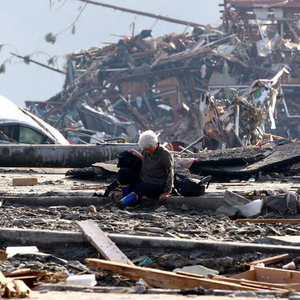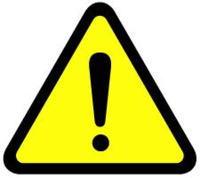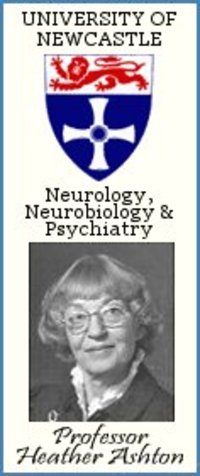3-11 and Benzos

Just as radiation fallout from the nuclear plant has been forming hotspots, could potential overprescribing of psychotropic drugs also be forming dangerous hotspots in the disaster areas?
We all know the mega-quake of 3/11 was a disaster of astronomical proportions with the subsequent tsunami and Fukushima nuclear accident as well.
Many people’s lives have been changed forever; many people lost their jobs, homes and everything they had. Many people have suffered from losing their loved ones.
It is therefore no wonder many people are suffering from trauma, anxiety, sleep problems etc.
As someone who has experienced both doctor induced benzodiazepine dependency and the effects of the 3/11 disaster, I immediately became concerned about the overprescribing of prescription drugs to the many thousands of people in the disaster areas.
As it happened, I was writing my Supreme Court appeal in the midst of the disaster, so I took this opportunity to try and raise the alarm by including the following passage in my closing comments.
“Following the events of the earthquake in Eastern Japan, the prescribing of benzodiazepines for trauma related conditions will likely increase. Unfortunately, for many of these people, if they are prescribed long term, it is likely they will have a second hell to come.” (See article 2.5).
I also highlighted an NHK documentary called “Educational TV (Educated Living) Drug Dependency” which quoted the following in Episode 4 screened on August 28, 2010.
“Recently, there are large amounts of psychotropic drugs being prescribed by clinics specializing in psychosomatics and cases of overdosing are becoming more apparent.”
Top of Page
Of course the concerns I outlined in my Supreme Court Appeal mentioned above were never heard and merely fell on deaf ears.
Later, as predicted, reports of people struggling with medication began surfacing.
One example was on Wednesday, March 6, 2013 when I was watching a documentary on News Watch 9 called “Residents Feeling Pressure – Nearing 3rd Year of Evacuee Life”.
When I watched this documentary I thought they mentioned people who had become dependent to tranquilizers and sleeping pills (I may have been mistaken). When I searched the internet I could only find the following quote: “Forty percent of residents were plagued with sleep disturbances and were reliant on sleep medication”.
For the purposes of this website I considered doing further research to try and find more detailed information on how many people may be suffering from prescription drug dependency.
Ultimately, I decided not to because most health workers in Japan do not understand the risks of benzodiazepines anyway and it is therefore highly unlikely that no survey would have been done.
However, anyone can calculate the risk level by themselves. It is not difficult. All one needs to do is add together, or simply consider the following risk factors.
Top of Page
The Formula
1. Susceptibility
+
2. High Prescribing Rates
+
3. Addictiveness
+
4. Ignorance
=
(You can answer by yourself)
1. Susceptibility
Many people in the disaster areas are experiencing a great deal of trauma and stress / anxiety (Common Knowledge).
2. High Prescribing Rates
Recently, there are large amounts of psychotropic drugs being prescribed by clinics specializing in psychosomatics and cases of overdosing are becoming more apparent. When irregular symptoms appear due to side-effects or adverse effects, there are often no initiatives to remove the drugs; rather the prescriptions are usually increased as a means to treat these symptoms. Subsequently, in many cases, these prescriptions continue to escalate eventually resulting in cases of over prescribing and overdosing. (An NHK Educational TV program touched on similar issues).
Japan has the highest average consumption rate of “anxiolytic” benzodiazepines in Asia with the only exception being Iran. Japan has the highest average consumption rate of “sedative-hypnotic” benzodiazepines in the world with the only exception being Belgium (Source: The International Narcotics Control Board Report 2010).
3. Addictiveness
“Tolerance and dependence can develop if benzodiazepines are used regularly for longer than 2-4 weeks. There is no minimum dose, for example tolerance and dependence have been observed after the regular use of 2.5-5mg of diazepam.” (Source: Professor Heather Ashton: Emeritus Professor of Clinical Psychopharmacology, University of Newcastle upon Tyne, England).
4. Ignorance
“Misdiagnosing as schizophrenia, over diagnosing of depression, extraordinary prescribing of numerous prescriptions and large doses, doctors showing anger towards patients when they try to seek a second opinion, frequent cases of sudden deaths, suicide etc.” (Source: Yomiuri Newspaper).
Also consider “In Closing of Japanese Translation” included at the end of The Ashton Manual in Japanese.
Top of Page
Consider This
“Bereavement is not an illness, it is a normal reaction”
(Source: Check Your Medicine to Check Your Life)
As someone who has experienced both doctor induced benzodiazepine dependency and the effects of the 3/11 disaster, I felt the need to include this section in my website and to try and avail some information in Japanese that may be relevant to those affected by the disaster.
Through my contact with Japanese doctors, I learned of a medical journal series called “Check Your Medicine to Check Your Life”. The editors have been providing periodic information about medication for disaster victims since the disaster first struck.
Below are some examples:
Urgent Notice from “Check Your Medicine to Check Your Life”
No. 142
Medication Precautions at Time of Disaster
http://www.npojip.org/sokuho/110320.html
- Taking anxiolytic (anti-anxiety) drugs, sleep medication? For those on large doses please note it is dangerous to stop suddenly.
- Taking anxiolytic (anti-anxiety) drugs, sleep medication? Dependency is easily formed so please commence with necessary care.
- Taking SSRI Anti-depressants (notably Paxil)? Stopping can be dangerous, due care with reinstatement is also needed.
No. 143
Medication Precautions at Time of Disaster (for health professionals)
http://www.npojip.org/sokuho/110322.html
No. 144
Medication Precautions at Time of Disaster (3)
http://www.npojip.org/sokuho/110322-2.html
- How to cope with losing loved ones including family and friends (bereavement care)?
- Don’t use anti-depressants or anxiolytic (anti-anxiety) drugs?
Later Publications (special editions)
Following the initial releases of information above, the editors of “Check Your Medicine to Check Your Life” have since been producing a special edition series on the risks of benzodiazepines, antidepressants etc.
No. 49
Special Edition: “Insomnia, Anxiety, depression – Actions & Adverse Effects of Benzodiazepines" (January 2013)
No. 50
Special Edition: “Developmental Disorders – Effects & Adverse Effects of Drugs Used for Children" (April 2013)
No. 51
Special Edition: “Depression and Medication – Do Not Use Psychotropic Drugs for Bereavement” (July 2013)
These special publications (No. 49 & No. 51) also include quotes from The Ashton Manual about the problems with benzodiazepines and bereavement or grieving processes.
Information regarding bereavement in The Ashton Manual can be seen under the sections on Memory Impairment and Anxiety in Protracted Withdrawal Symptoms.
Top of Page
WARNING
- Any information given on this site should not be substituted for the advice of a physician who is well-informed about benzodiazepine dependency and withdrawal.
- All information given here is therefore to be followed at your own risk (See Disclaimer).
- Abrupt cessation of benzodiazepines may be very dangerous. Always consult your prescriber if you are considering making any changes.

The primary language of this website is English. Japanese appears as translations only (except for some original court documents).
These translations have been done by many different translators including me. Therefore, there are differences in quality and styles.
Please understand that I am not native Japanese and subsequently there are parts that may sound unnatural in Japanese.
Don’t think benzos are dependence forming on prescription doses?

Think again!
“Tolerance and dependence can develop if benzodiazepines are used regularly for longer than 2-4 weeks. There is no minimum dose, for example tolerance and dependence have been observed after the regular use of 2.5-5mg of diazepam.”
Professor Heather Ashton: Emeritus Professor of Clinical Psychopharmacology, University of Newcastle upon Tyne, England
“If any drug over time is going to just rob you of your identity [leading to] long, long term disaster, it has to be benzodiazepines.”

Dr John Marsden,
Institute of Psychiatry, London
November 1, 2007
“Benzos are responsible for more pain, unhappiness and damage than anything else in our society.”

Phil Woolas MP,
Deputy Leader of the House of Commons,
Oldham Chronicle, February 12, 2004
The Ashton Manual contains expert advice on benzodiazepines and how to withdrawal written by world renowned expert Prof. Heather Ashton.

The withdrawal schedules provided in the manual are only intended as "general guides". Each person's experience of withdrawal is unique and the course of withdrawal depends on many factors.
A doctor that took the time to listen…

Whilst residing in state housing in Nagano, as an evacuee from Fukushima, I consulted a local ENT about ear pain from overuse of earplugs.
As we got talking he learned of my situation with regards to being displaced by the 3/11 disaster and Fukushima nuclear accident.
As a result, he also learned that I was under some stress.
However, instead of labeling me with some fancy diagnostic term and prescribing me drugs, he sat down and we discussed possible solutions as to how to I might be able to relocate, get my job back, etc.
He did this after his surgery had closed over a cup of tea – what a great doctor and what a great guy!






